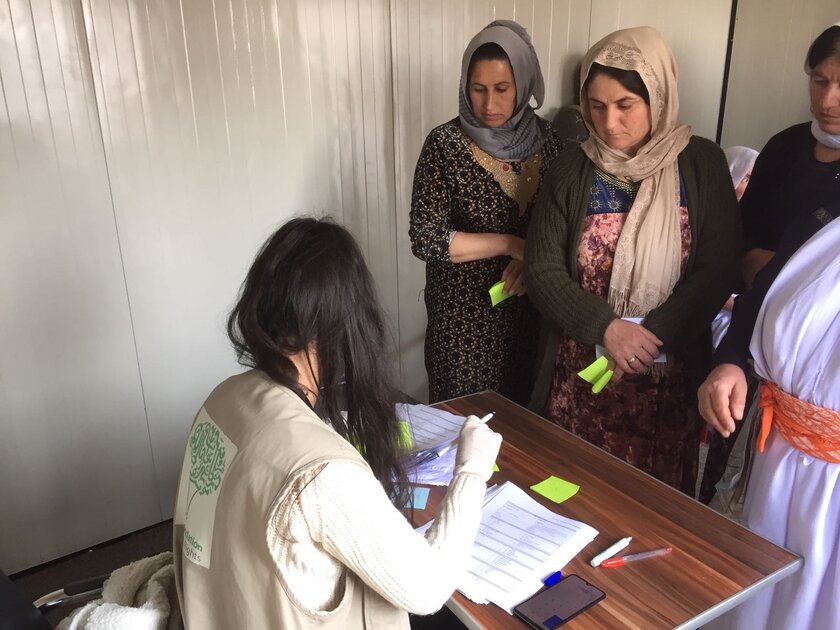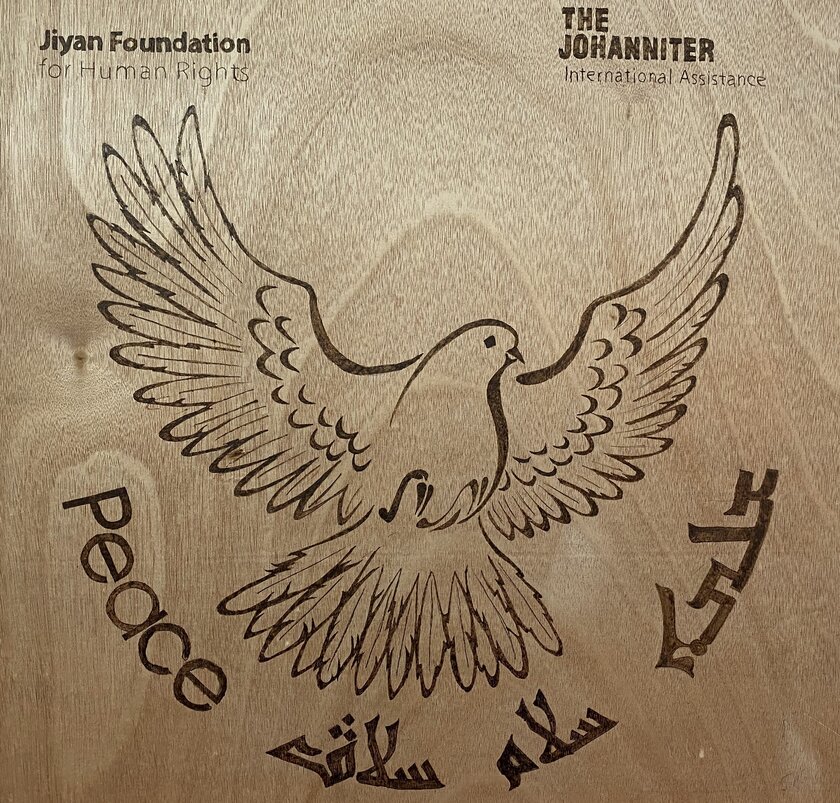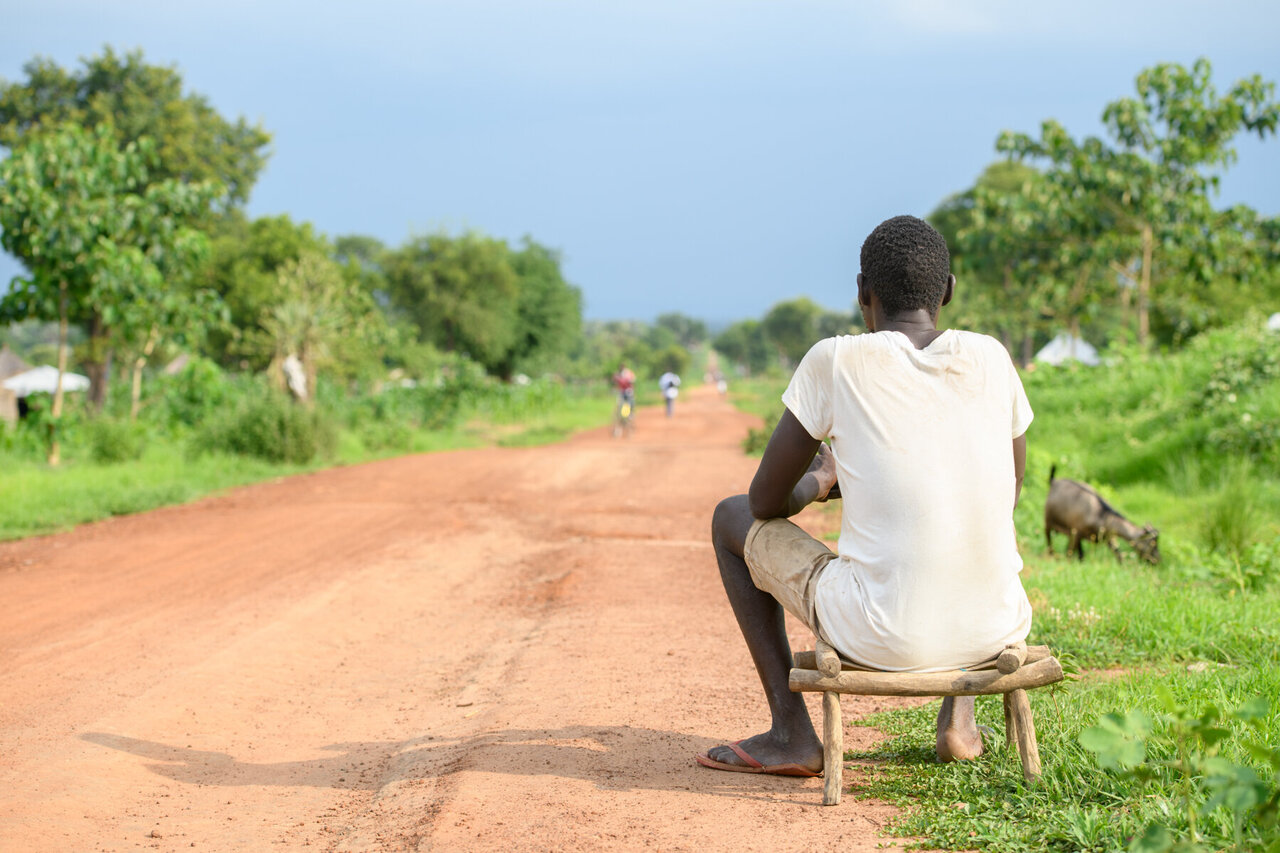Mental health in Iraq: Finding inner peace
Berlin / Alqosh, 09 October 2021

Between 2013 and 2017, nearly six million people in Iraq were forced to flee after the Islamic State (IS) took control of large parts of the country. Afterwards, traumatised people returned to their homes or continued to persevere as internally displaced persons "IDPs" in camps and communities under the impact of the events. The goal of our partner organisation, Jiyan Foundation, is to provide life-saving psychological, medical and social support to survivors.
The life of the young woman Oum Ayas (Name changed), now 23 years old, is a string of traumatic experiences and almost hopeless situations. She was married off at the age of 13. She remembers feeling nothing but fear at the time. From her family, she only experienced rejection and violence from her brothers. After her mother accused her of having a relationship with another boy at the age of 12, she attempted suicide. It was not to be the last.
In 2014, the IS attacked her village in Sinjar district, which was inhabited by a majority of Yazidis, an ethnic-religious minority in northern Iraq. The IS killed around 3100 Yazidis and kidnapped 6800 during this weeks. Among the kidnapped were two sisters of Oum Ayas, who managed to hide herself in the mountains. In 2015, she became pregnant again in an IDP camp and tried to take her own life again after her husband beat her.
Cognitive behavioural therapy for stress reduction and a positive life perspective

The suffering would continue until 2019, when she finally received help at the Jiyan Centre in Alqosh. After screening her medical and psychological condition, Jiyan's psychotherapy team began her treatment process. Cognitive behavioural therapy, consisting of psychological sessions and treatments as well as mental health awareness, helped the young woman. Through conversations, she was able to reduce stress, and negative thoughts were replaced with positive thoughts step by step.
"Mental illness continues to be one of the main causes of illness among Iraqis," explains Sevin Ibrahim, who coordinates Johanniter's program in the country.
However, the health system has lost many doctors and therapists over the past 15 years. As a result, many people with pre-existing conditions have gone untreated over the years of instability.

That is why Johanniter is now supporting Jiyan in setting up another centre in Baghdad. In the future, people will not only be treated there, but also health workers will be trained on the topic of mental health and educated about it in general. Oum Ayas' case shows how important this is. After more than 25 psychotherapy sessions, her mental condition has improved significantly. Today, she believes in herself and is able to face the challenges and difficulties of the life that lies ahead.
The project is financially supported by the German Federal Ministry for Economic Cooperation and Development (BMZ)
